Women's History Month
Explore Baker Library resources with a connection to women and business.
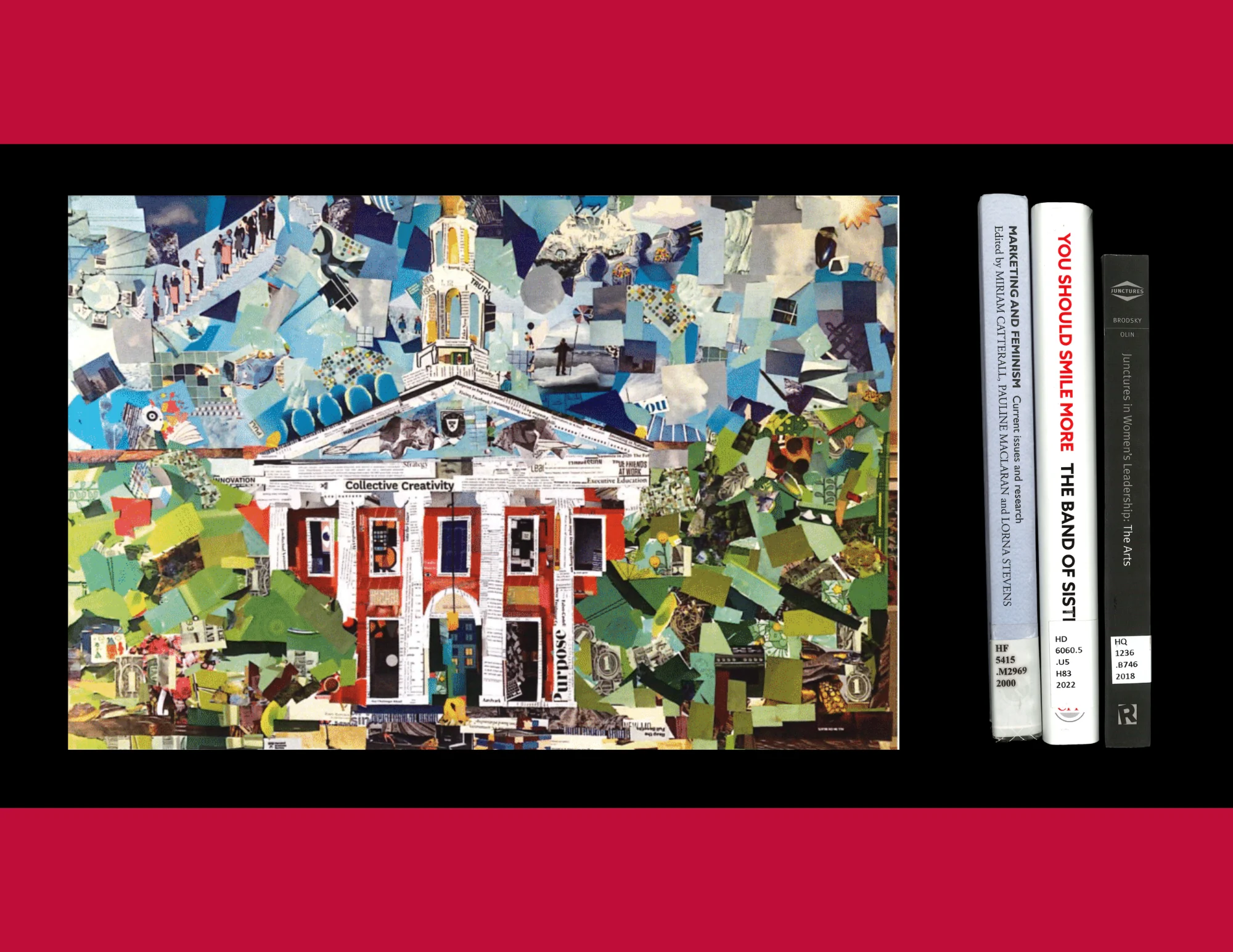.png)
Quick Research Resources
Take advantage of Crunchbase's (in-library only) "Diversity Spotlight" feature, where you can filter for U.S. start-ups founded and led by women.
Look at Capital IQ Pro's market maps on women's health and reproductive health to view companies and transactions occurring in these spaces.
Use Preqin to screen for VCPE firms led by women or Pitchbook to screen for VCPE-backed companies in the femtech industry.
Review Statista's Global Status of Women dossier to learn various statistics and facts.
HBS Cases
Baker Library provides active HBS cases to students currently enrolled in an HBS MBA or doctoral course only.
Contemporary Collections
Contemporary Collections aim to support the research and curriculum of the Harvard Business School today and into the future. Collection activities focus on the career and professional development needs of our MBA students and alumni, as well as on access to business content to the Harvard University community at large.
Largest Minority/Women-Owned Businesses in Massachusetts by Revenue
The Boston Business Journal, which is part of American City Business Journals (ACBJ), publishes an annual Book of Lists that ranks Massachusetts-based firms by several categories. ACBJ publishes lists for many metropolitan areas in the US, some of which are discoverable via HOLLIS and viewable in Baker.
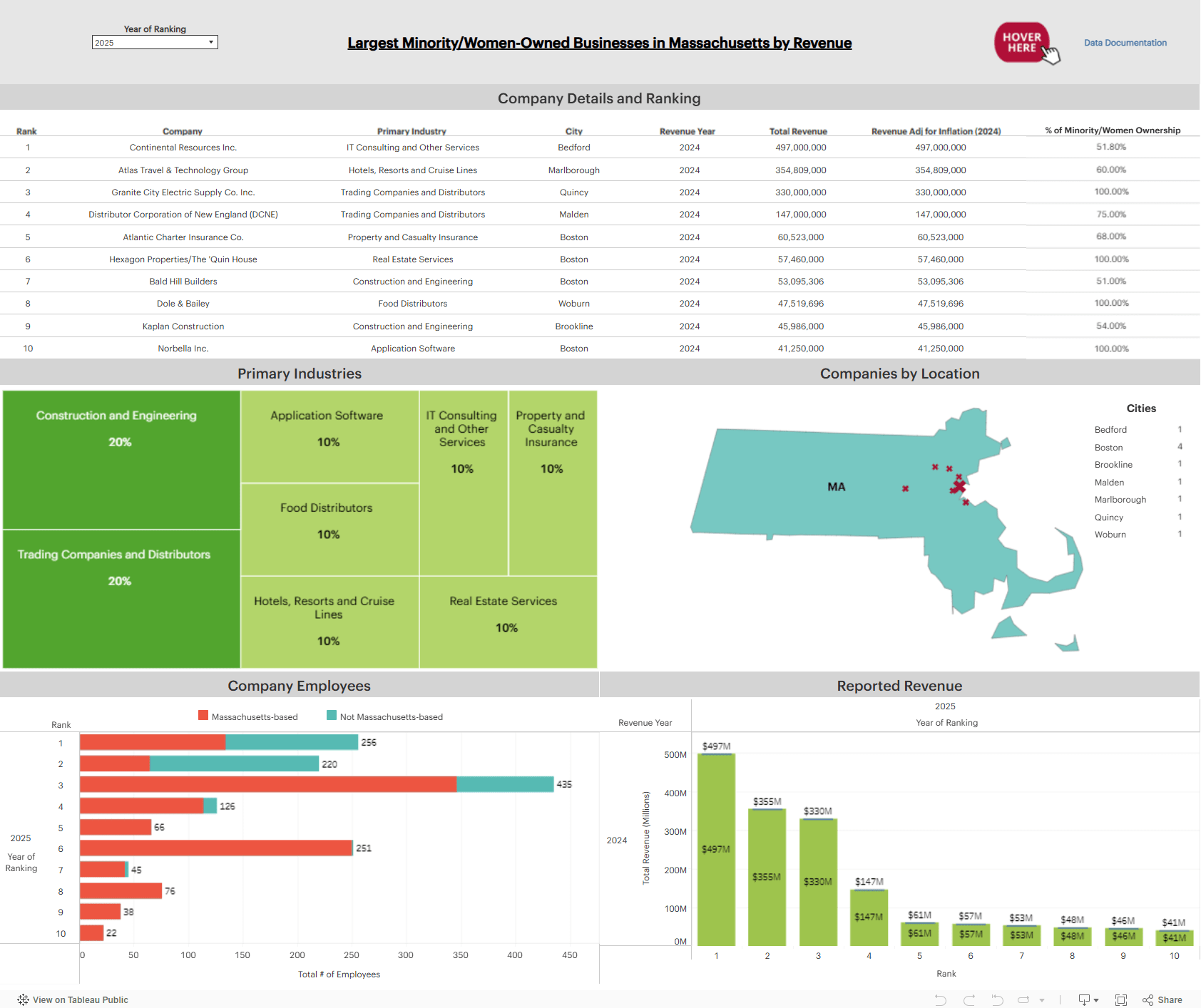
The above image represents an interactive Tableau dashboard consisting of 10 years worth of Book of Lists data. It captures the Largest Minority/Women-Owned Business in Massachusetts by Revenue, where ownership is defined as at least a 51% equity stake in the company. For the last several years, Construction & Engineering has be the dominant industry associated with these ranked firms. Women-owned businesses were given a separate list in 2021, allowing for greater insights into female enterprises.
Explore the dashboard to view the rankings and company details, such as the primary industries, the companies by location, the breakdown of company employees, and the reported revenue.
Women's Business | Women's Business Boston
Women's Business: The Professional and Woman's Business Journal was a monthly professional publication that began in October 1998. The journal ceased with Vol. 3, Issue 12—less than 3 years after beginning circulation—and renamed itself to Women’s Business Boston in 2001, reducing its scope to only Massachusetts, New Hampshire and Rhode Island. By 2009, the publication ended circulation and the business entity, Women's Business, LLC, dissolved.
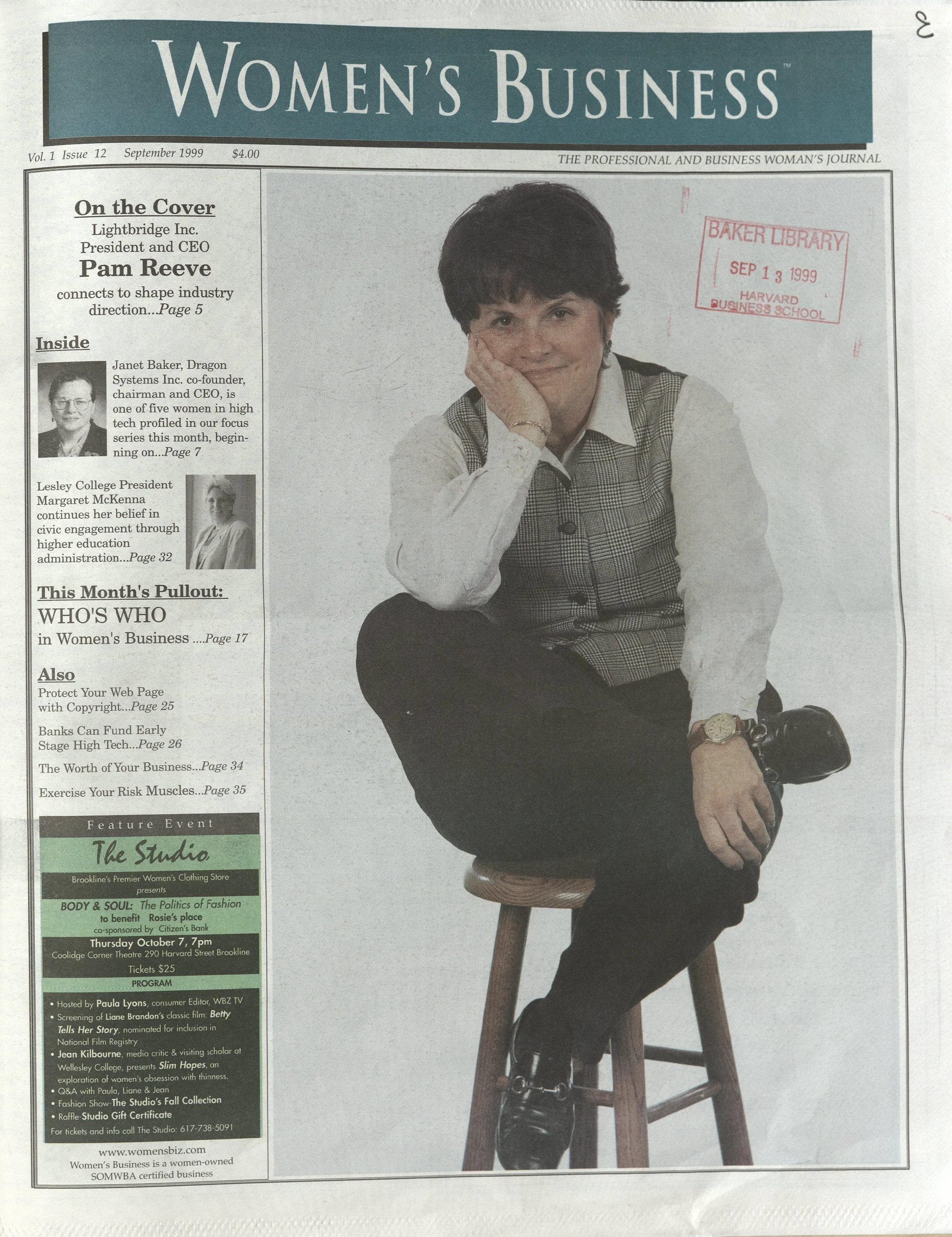
Pam Reeve, September 1999 (HBS MBA 1978)
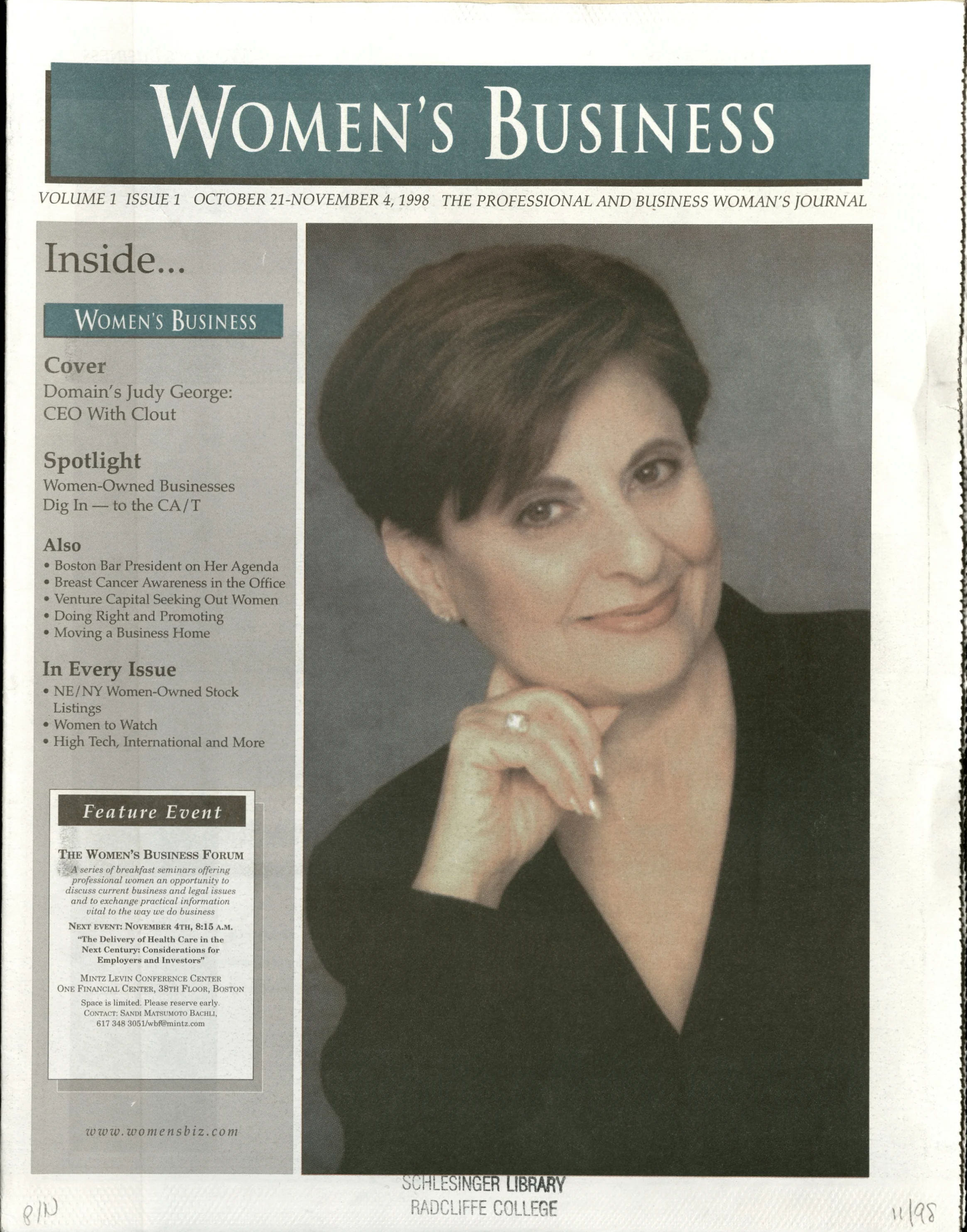
Judy George, October 1998 — image courtesy of Schlesinger Library
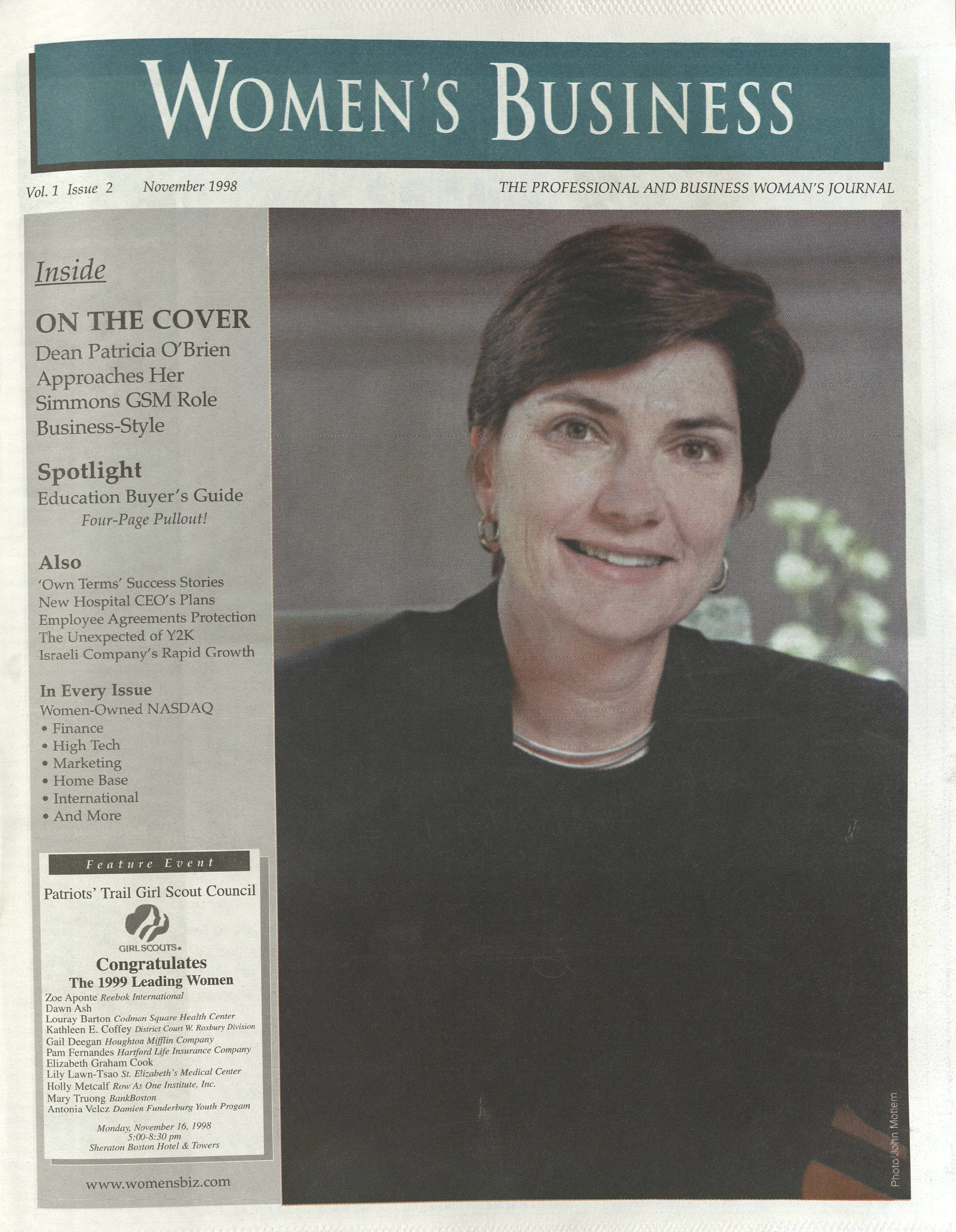
Patricia O'Brien, November 1998 (HBS Doctorate 1986)
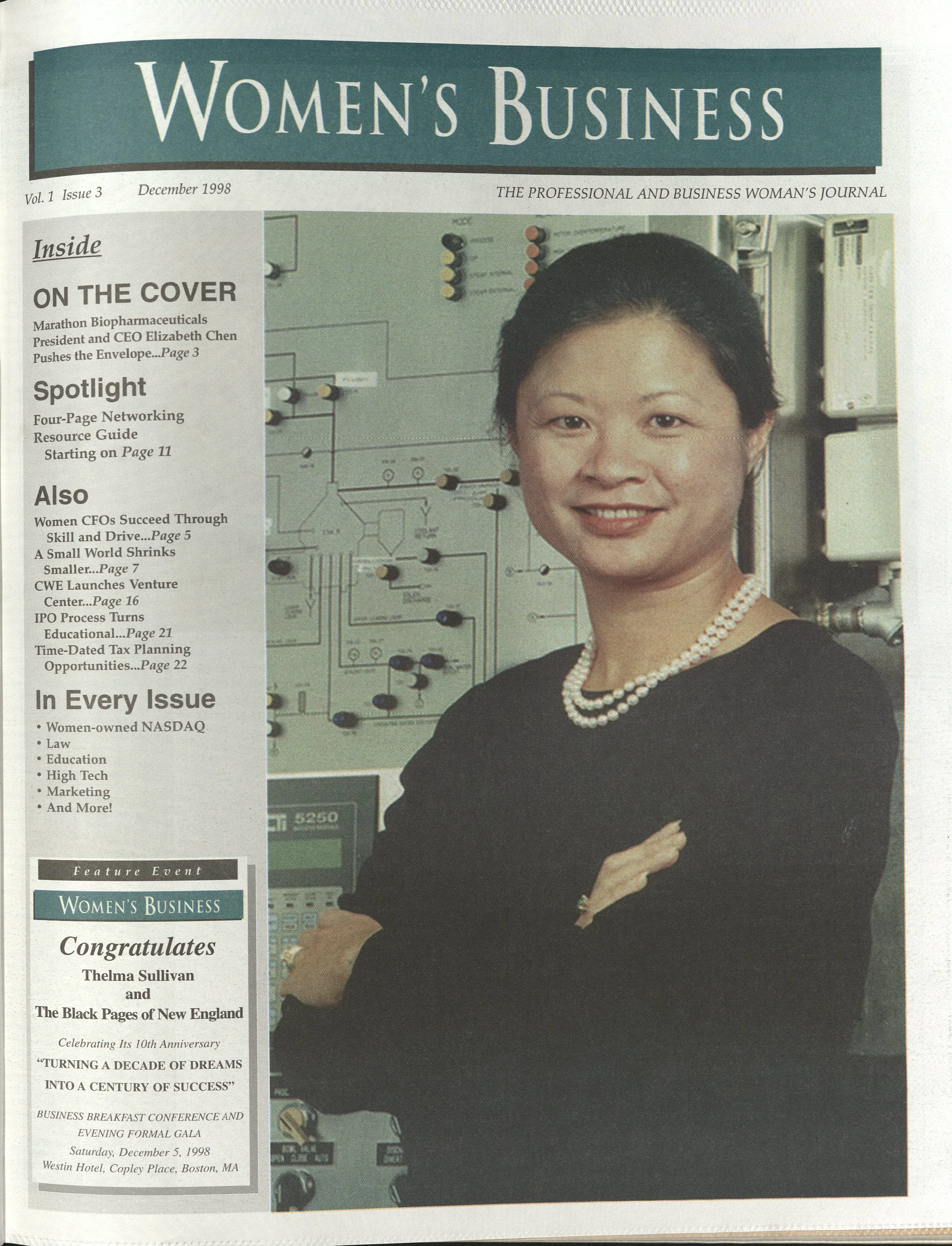
Elizabeth Chen, December 1998
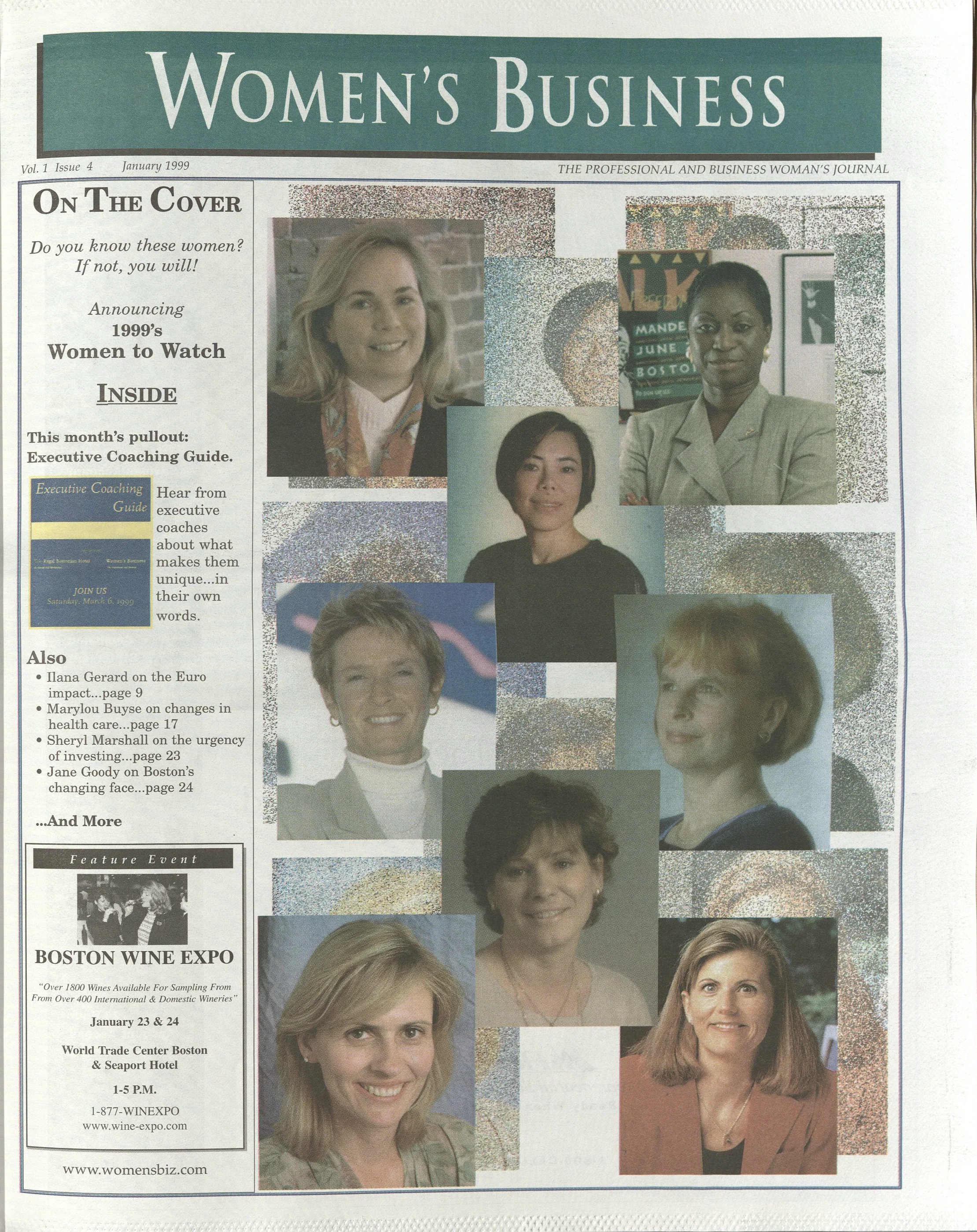
Jennifer Bergantino; Elise Chow, Mona Eliassen; Cynthia Fisher (HBS MBA 1990); Jane McBride (HBS OPM 28); Colette Phillips; Patricia Seybold; Sue Welch, January 1999
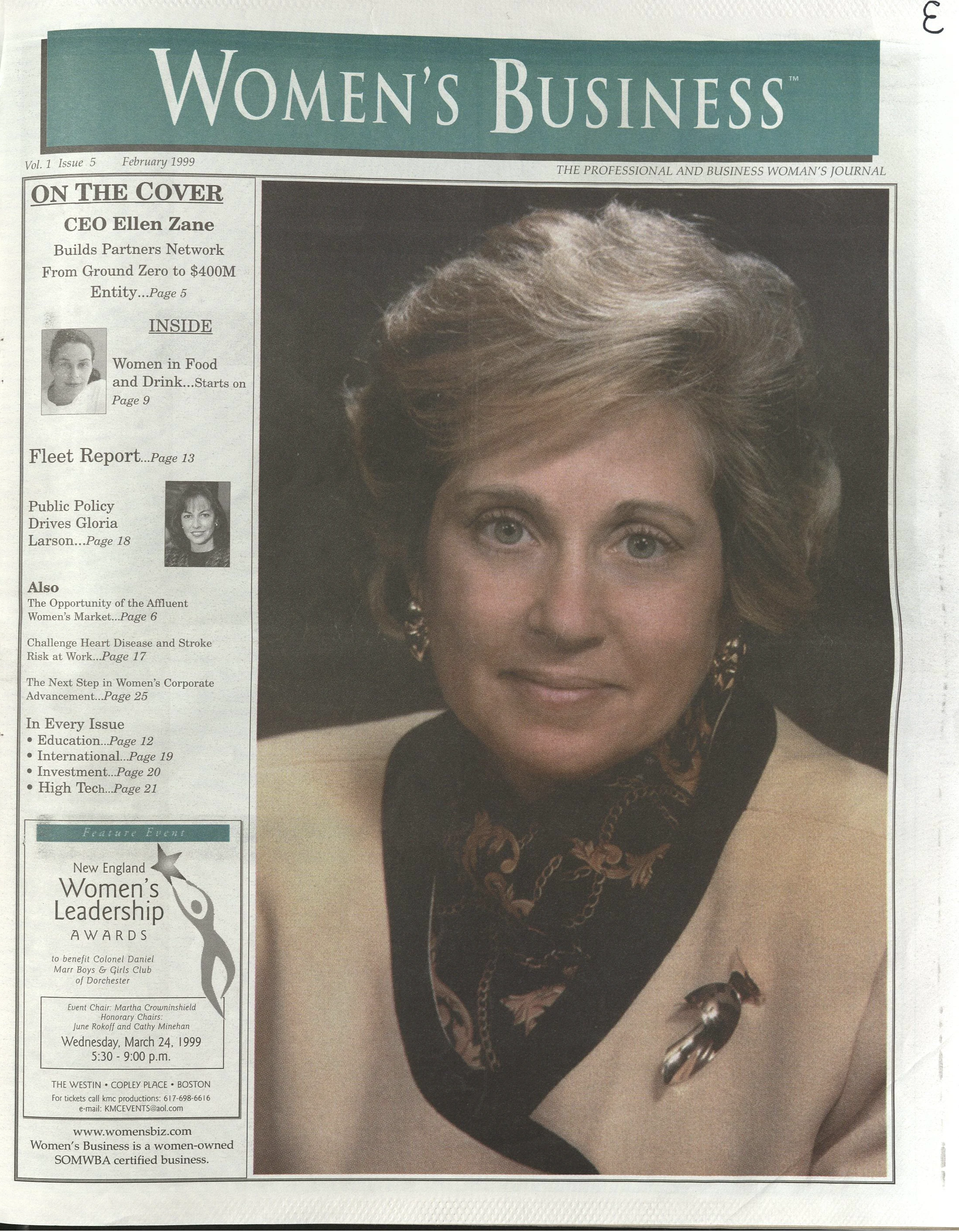
Ellen Zane, February 1999
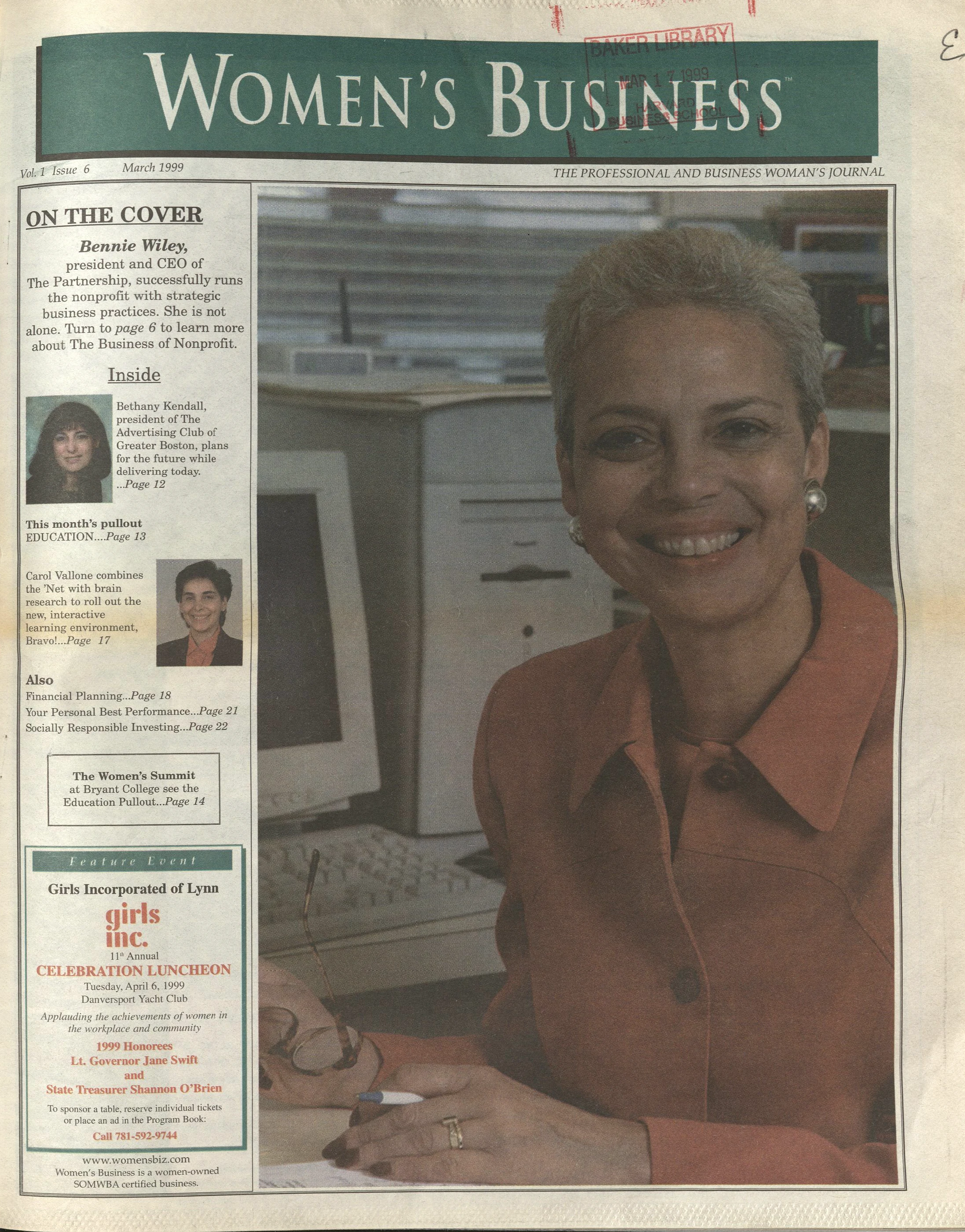
Bennie Wiley, March 1999
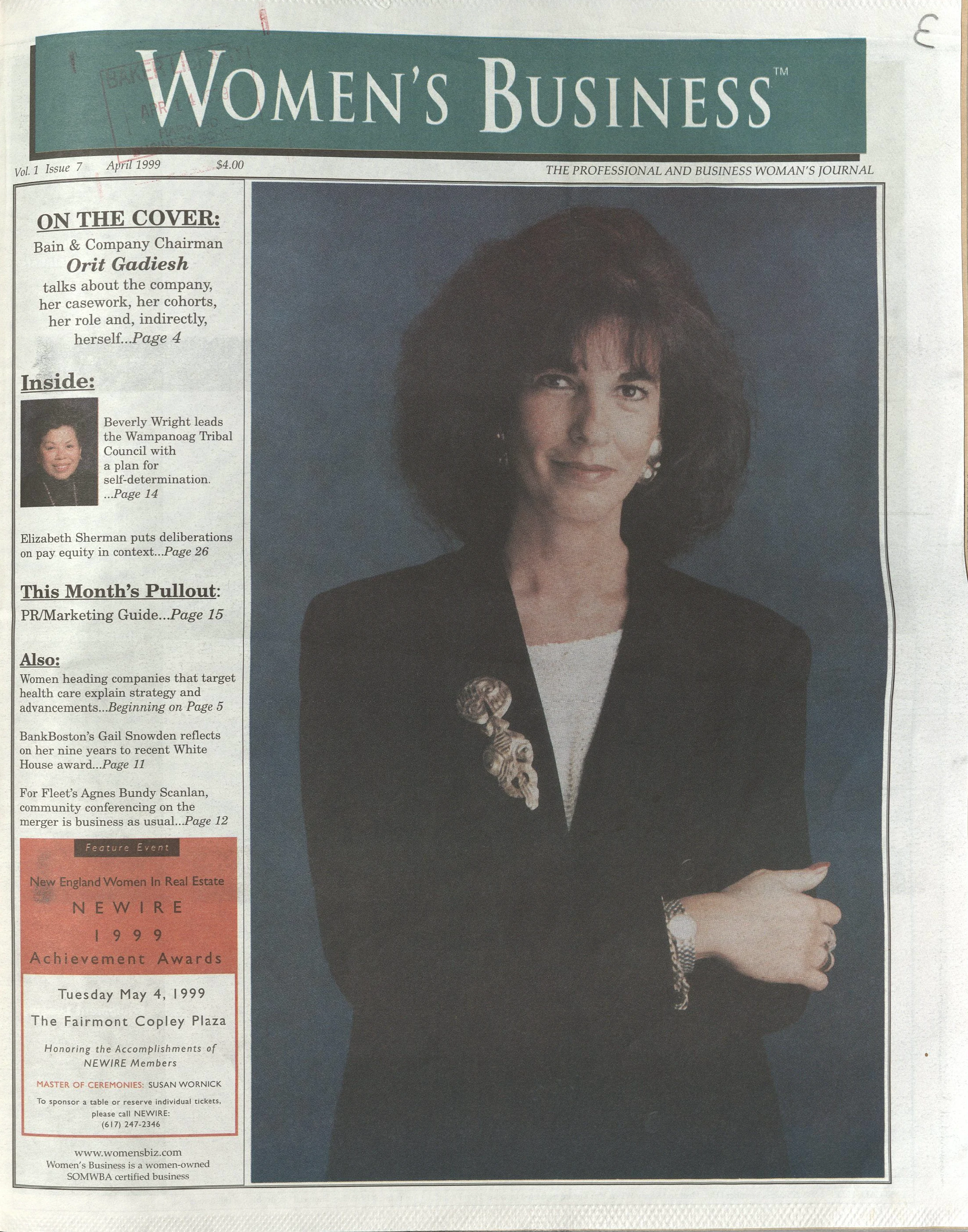
Orit Gadiesh, April 1999 (HBS MBA 1977)
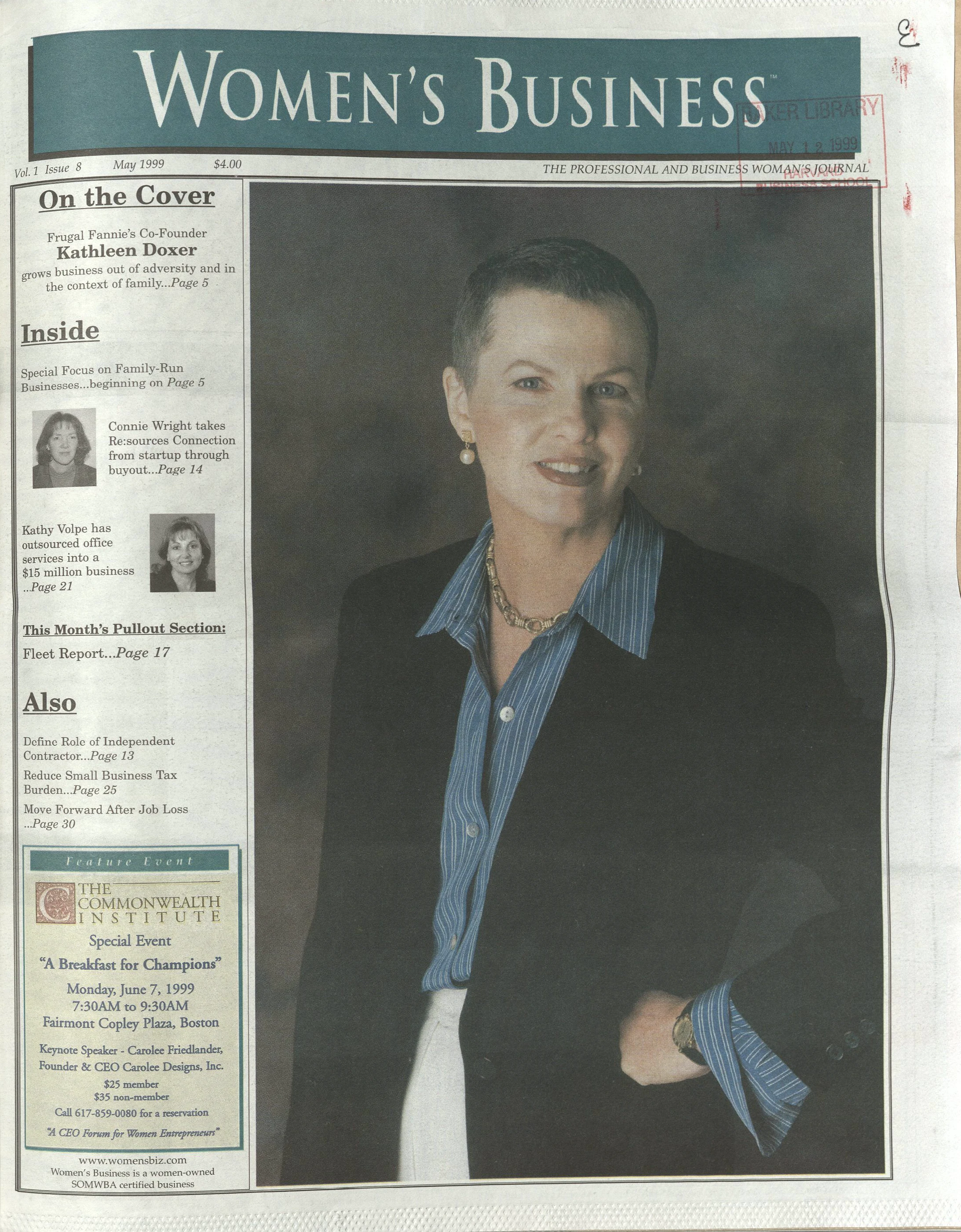
Kathleen Doxer, May 1999
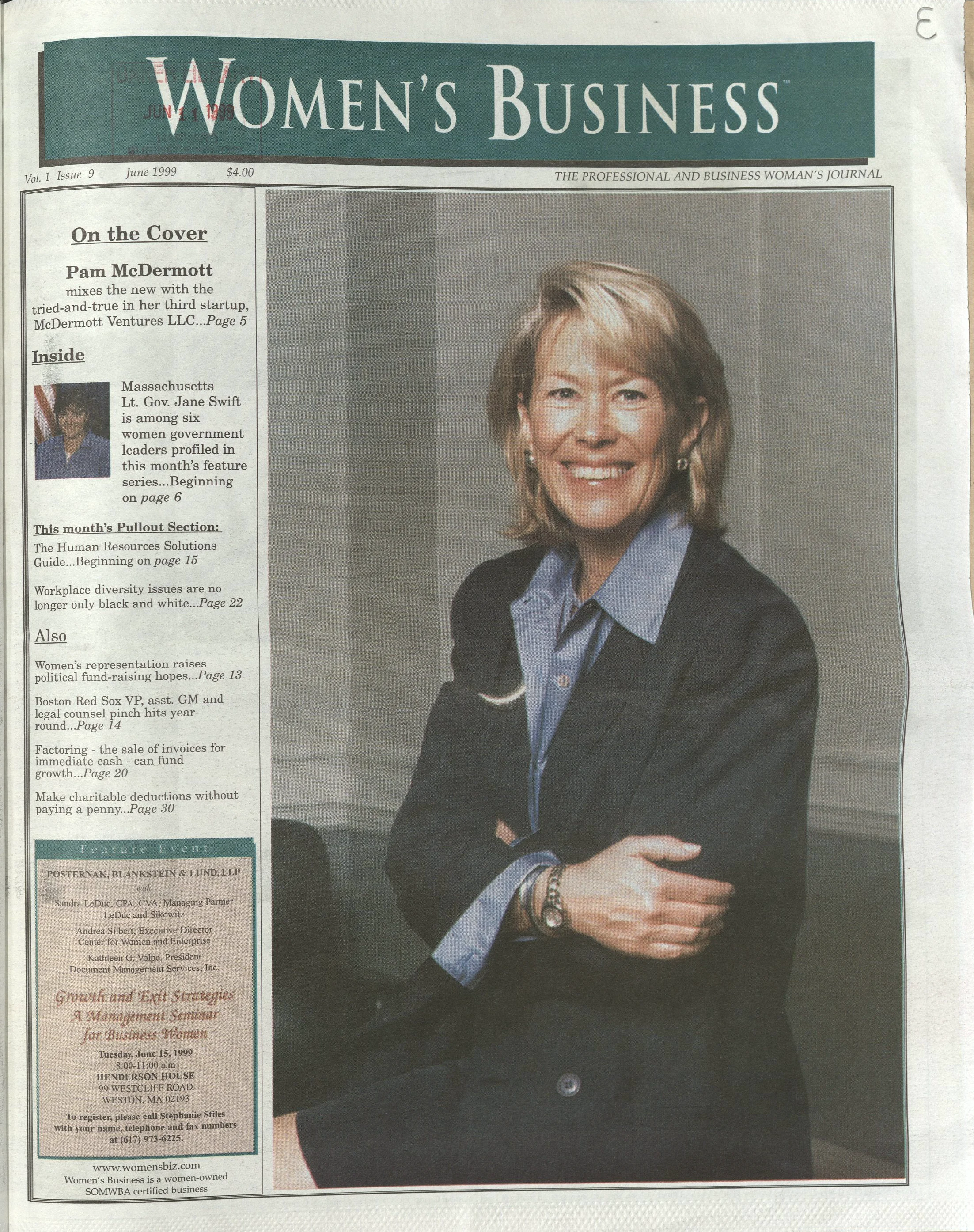
Pam McDermott, June 1999
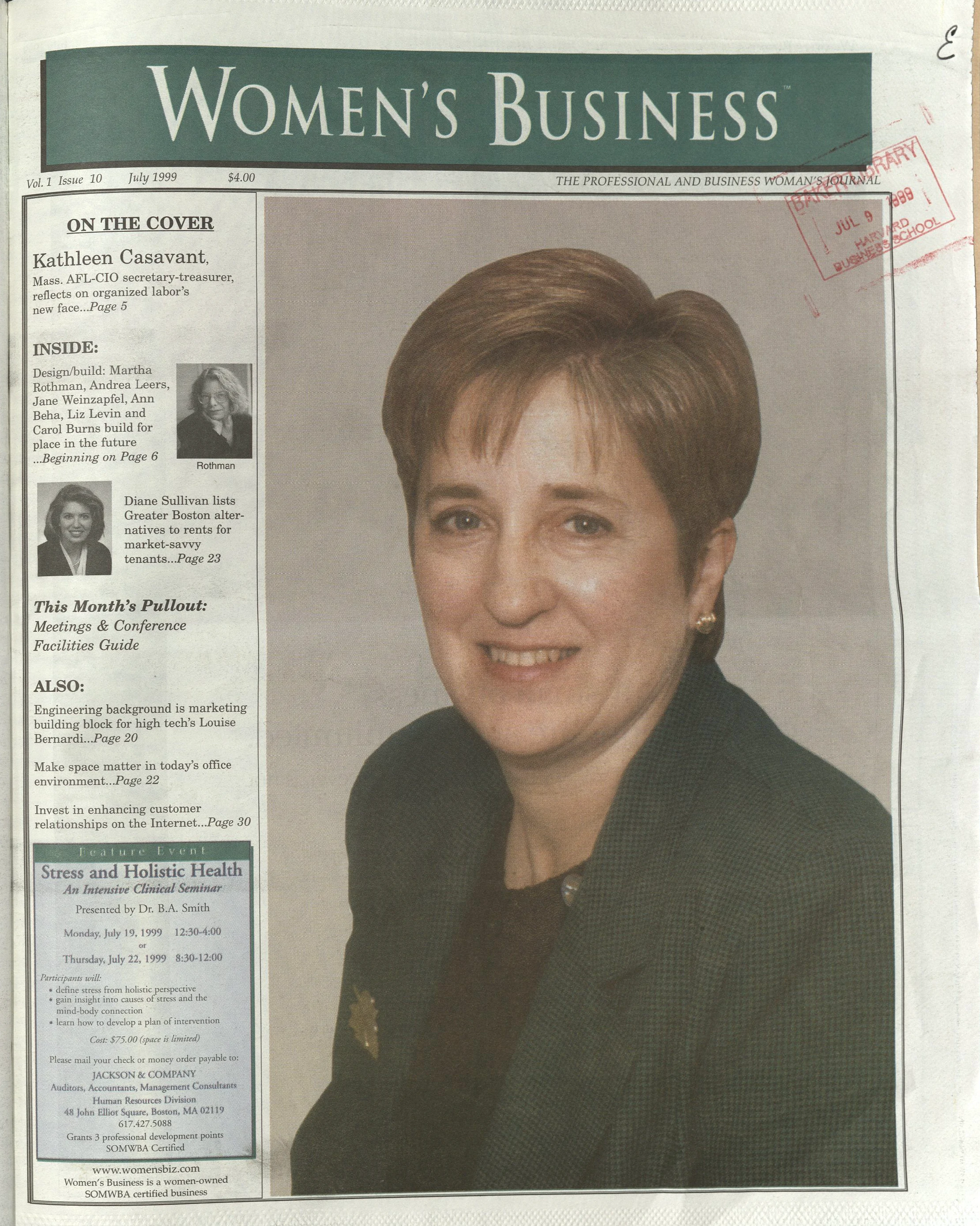
Kathleen Casavant, July 1999
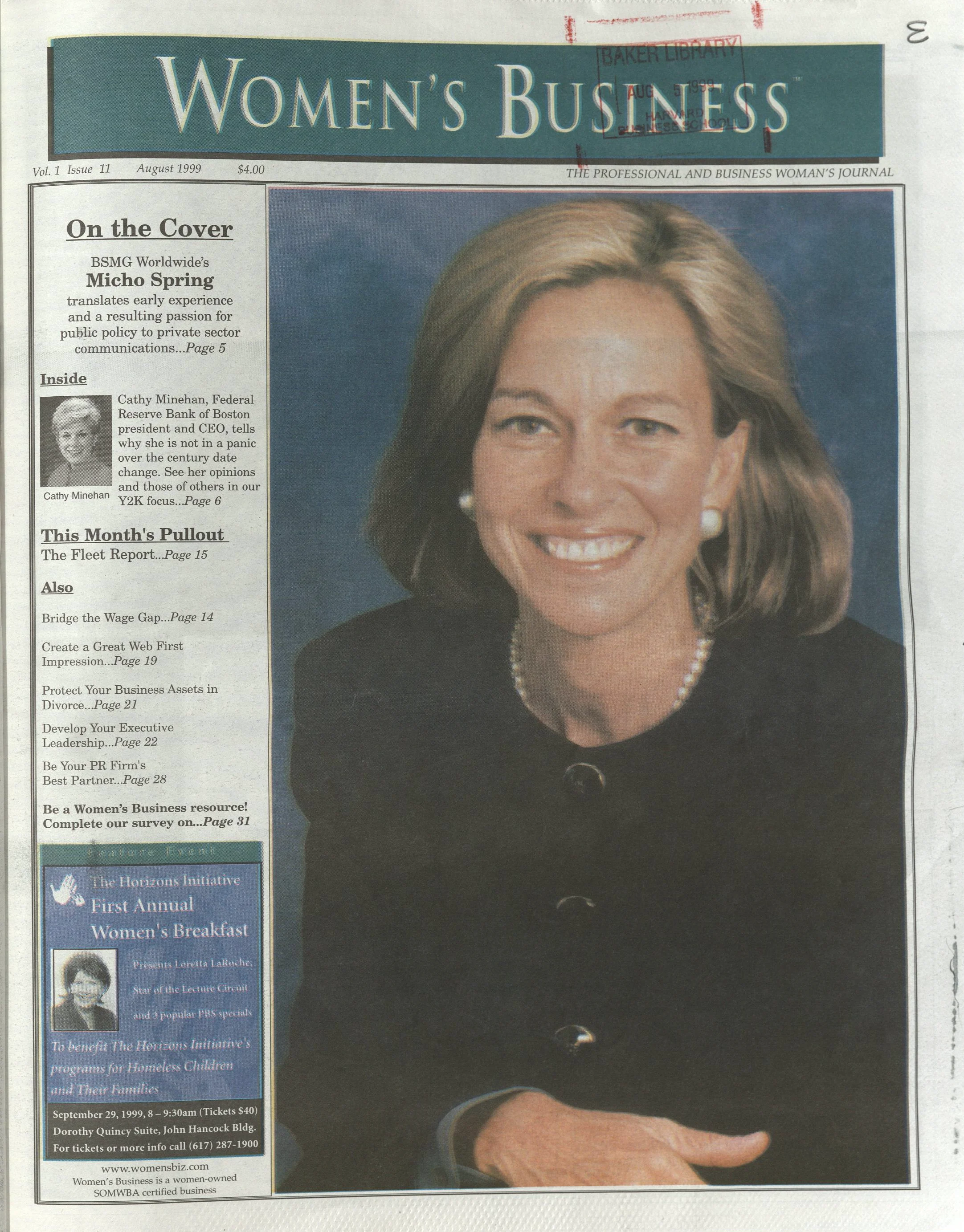
Micho Spring, August 1999

Judy George, October 1998 — image courtesy of Schlesinger Library

Patricia O'Brien, November 1998 (HBS Doctorate 1986)

Elizabeth Chen, December 1998

Jennifer Bergantino; Elise Chow, Mona Eliassen; Cynthia Fisher (HBS MBA 1990); Jane McBride (HBS OPM 28); Colette Phillips; Patricia Seybold; Sue Welch, January 1999

Ellen Zane, February 1999

Bennie Wiley, March 1999

Orit Gadiesh, April 1999 (HBS MBA 1977)

Kathleen Doxer, May 1999

Pam McDermott, June 1999

Kathleen Casavant, July 1999

Micho Spring, August 1999

Pam Reeve, September 1999 (HBS MBA 1978)

Patricia O'Brien, November 1998 (HBS Doctorate 1986)

Elizabeth Chen, December 1998

Jennifer Bergantino; Elise Chow, Mona Eliassen; Cynthia Fisher (HBS MBA 1990); Jane McBride (HBS OPM 28); Colette Phillips; Patricia Seybold; Sue Welch, January 1999

Ellen Zane, February 1999

Bennie Wiley, March 1999

Orit Gadiesh, April 1999 (HBS MBA 1977)

Kathleen Doxer, May 1999

Pam McDermott, June 1999

Kathleen Casavant, July 1999

Micho Spring, August 1999

Pam Reeve, September 1999 (HBS MBA 1978)

Judy George, October 1998 — image courtesy of Schlesinger Library
Women's Business launched with the mission of "giving business and professional women voice and visibility." The images above showcase the journal’s first 12 issues (October 1998 – September 1999), featuring women in leadership—several of them HBS or Harvard graduates.
A decade later, in 2008, Women’s Business marked its 10th anniversary by revisiting these original cover subjects. Through re-interviews, the magazine captured their career trajectories, highlighting entrepreneurial pivots, board leadership, foundation work, family obligations, and deepening industry expertise.
You can download a PDF to read these cover stories and the 10 year anniversary catch-up.
The National Association of Bank Women (NABW) Journal
The NABW Journal was, in part, a professional development tool for women in finance. The journal aimed to satisfy members' needs for information about the association, the industry, and issues important to executive women. The publication was preceded by The Woman Banker (housed at Schlesinger Library) and continued by Executive Financial Women.
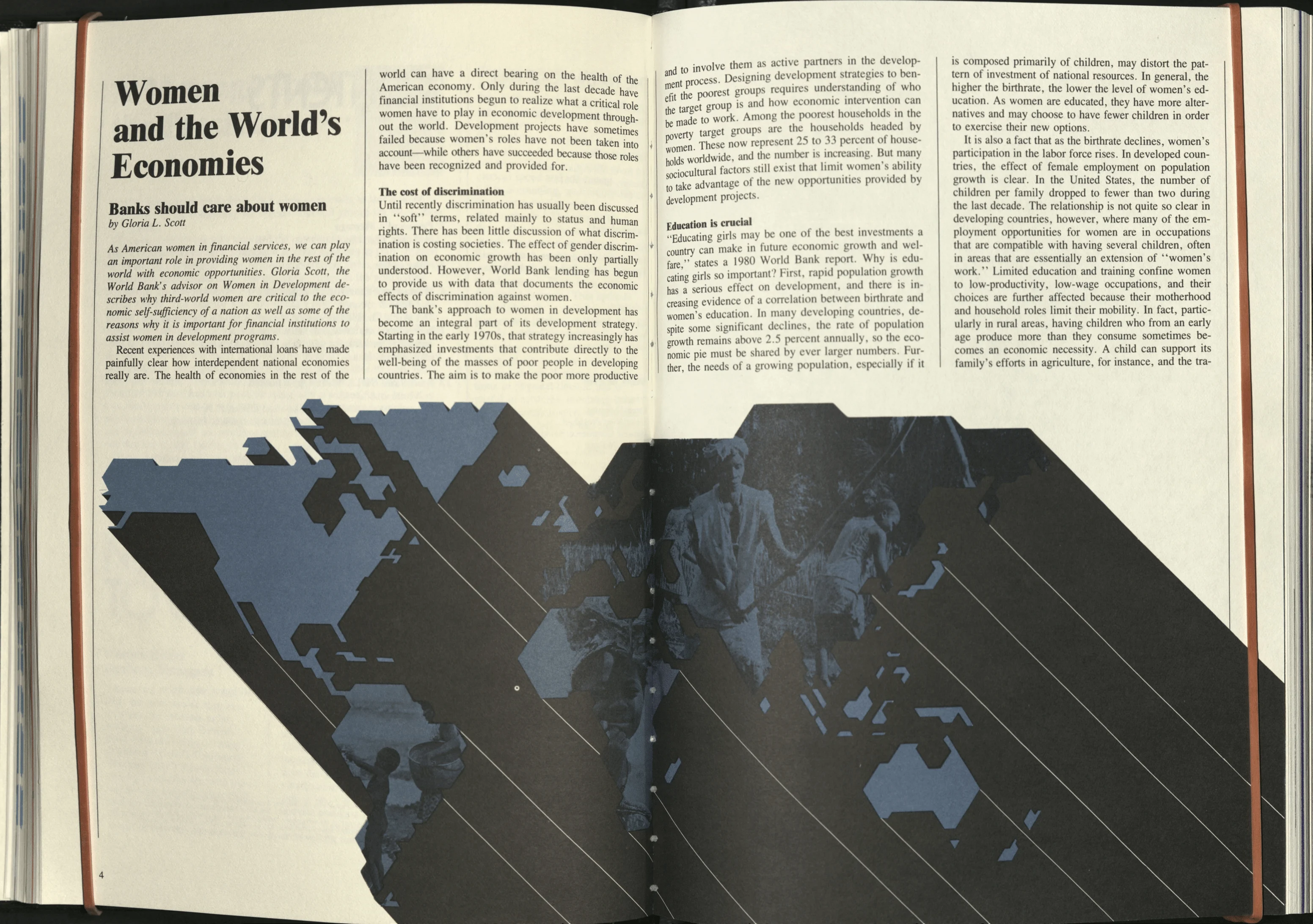
The above article from the May/June 1984 issue unpacks how women play a vital role in economic development, but face barriers like discrimination, limited education, and restricted financial access. However, when given the proper resources—such as microloans and inclusive banking policies—women demonstrate an entrepreneurial spirit that allows them to uplift themselves and their communities, suggesting that empowerment is an essential factor in breaking cycles of poverty and fostering equitable societies.
You can download a PDF to read the full article on Women and the World's Economies.
Special Collections and Archives
Special Collections and Archives collects and makes available the records of business dating from the 14th century to the present and the records of the Harvard Business School since its founding in 1908.
Muriel Siebert: Redefining Power and Possibility on Wall Street
Muriel Siebert (1928-2013), an American businesswoman, in 1967 became the first woman to purchase a seat on the New York Stock Exchange and was the first woman to own and direct a NYSE-member brokerage firm. Throughout her career, Muriel Siebert was actively involved with a wide range of non-profit, civic and women’s organizations serving as a prominent mentor, strong advocate, and role model for women in business. The Muriel Siebert papers, donated in 2020, include Siebert’s personal and professional records.
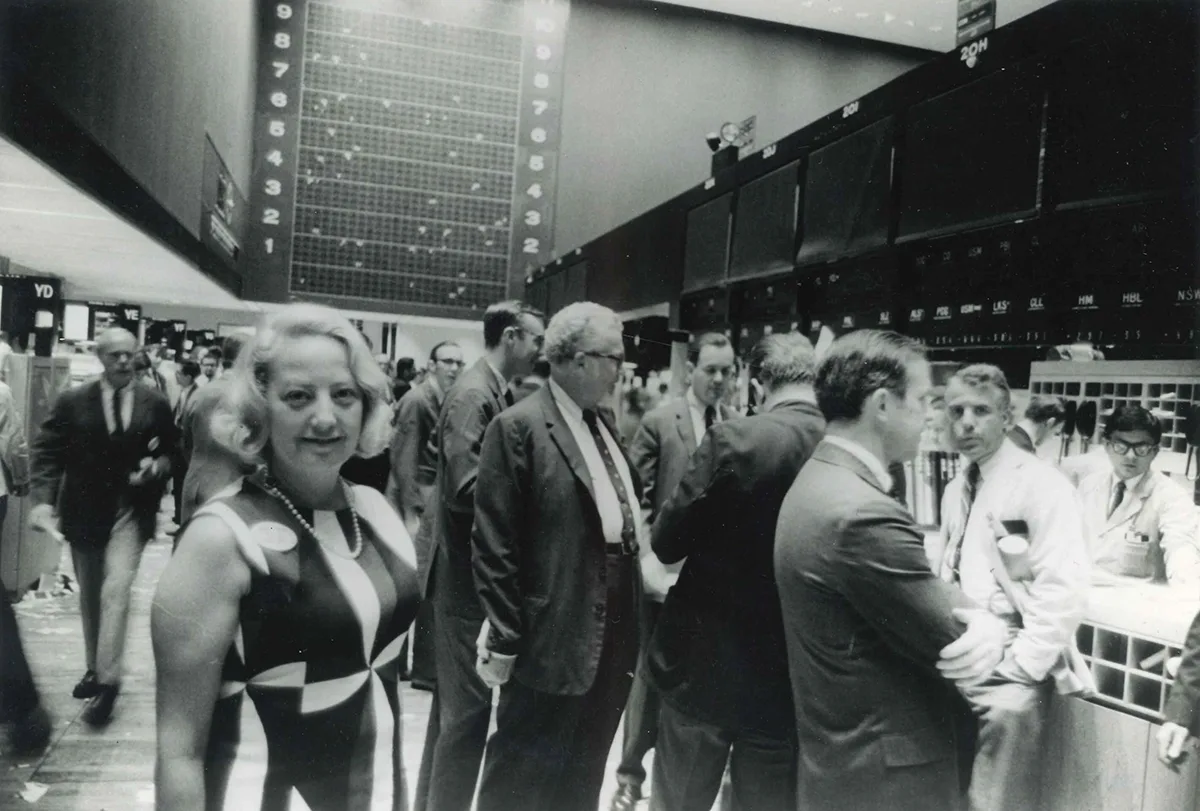
Muriel Siebert at the New York Stock Exchange, 1960s. Muriel Siebert Collection. Baker Library Special Collections and Archives.
Building the Foundation: Business Education for Women at Harvard University, 1937-1970
Building the Foundation traces the early history of business education for women at Harvard University from the founding of the one-year certificate program at Radcliffe College in 1937 to the integration of women into Harvard Business School (HBS) by 1970.
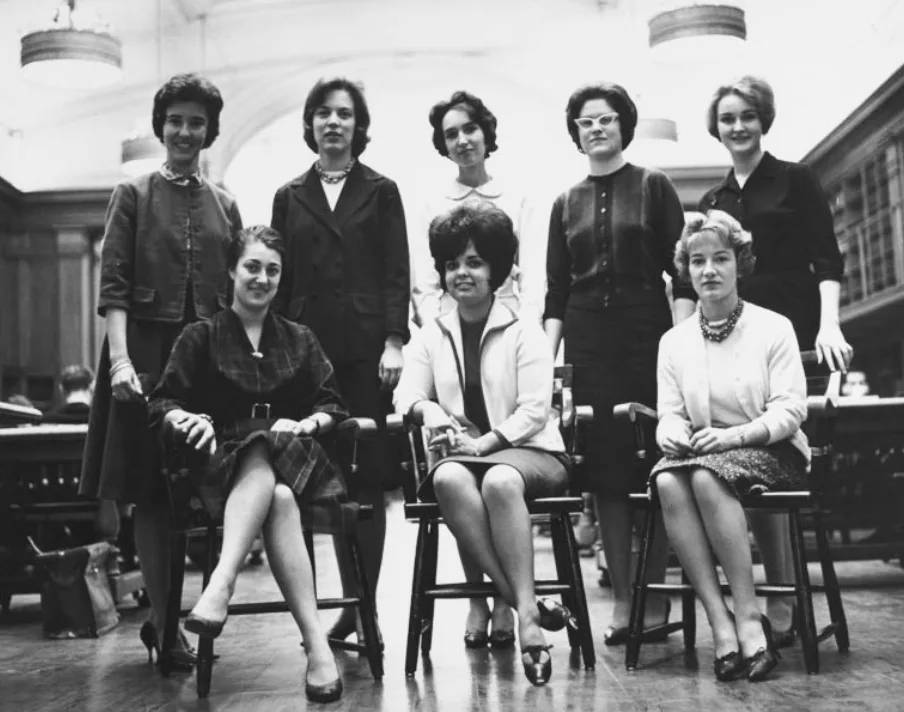
First 8 women admitted to first year of MBA program, 1963. HBS Archives Photograph Collection: Student Life. Harvard Business School. olvwork380782.
Working Knowledge
HBS Working Knowledge distills the latest faculty research into practical insights for leaders, entrepreneurs, and change agents. Stay up-to-date by signing up for the Working Knowledge Newsletter.